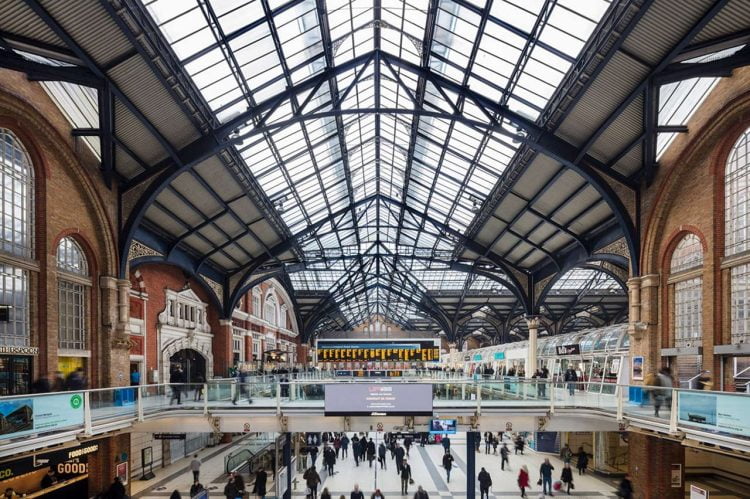London Liverpool Street station is to become a destination in its own right as Network Rail looks to the future with its plans to modernise the station to offer greater capacity and access for all, through its latest development plans.
In 2023, heritage organisations strongly opposed Network Rail’s last attempts to modernise the station.
The previous plans would have resulted in the demolition of the majority of the front of the station.
Having taken the feedback, Network Rail’s Property department has taken the feedback onboard and is leading a consultation on plans to improve the station along with protecting the station’s heritage.

With over 100 million people passing through the station every year, London Liverpool Street is Britain’s busiest station, which has led to congestion in the past, especially during delays at peak times.
With forecasters predicting that passenger numbers through Liverpool Street are expected to increase to over 140 million a year by 2050, Network Rail Property is eager to develop the station to meet its future demands.
This transport-led initiative by Network Rail Property is aimed at significantly enhancing the daily experience for passengers, with improvements that include:
- New entrances to Liverpool Street, Bishopsgate and Exchange Square.
- Step-free access to the London Underground, while plans for 7 new lifts and 4 extra escalators will make Network Rail platforms more accessible with the London Underground.
- Increasing the size of the concourse will mean more space for commuters, helping to ease congestion.
- Additional ticket barriers across the concourse will speed up the number of passengers able to pass through the gates
Liverpool Street will also see new waiting lounges, increased bicycle storage, updated public conveniences that included baby changing rooms, and updated signage across the station.

“Investing in transport infrastructure is key to unlocking future economic growth.
We’ve spent time talking and listening: our latest plans celebrate Victorian features, including the original train shed and the Great Eastern Hotel.
Robin Dobson, Group Property Director at Network Rail Property





Responses
London Liverpool Street should be kept as it is. Apart from making the station more accessible for disabled people who are in wheelchairs.
I would have thought that the currant building is already a destination in itself. A shabby and unloved structure was rescued some decades ago, and needs to be recognised for it’s Victorian grandure, and twetyeth century love
If London Liverpool Street was to be redeveloped then it should have extra platforms. So that London Overground have their own dedicated platforms and Greater Anglia have their own dedicated platforms along with some platforms shared with c2c and Elizabeth Line that sometimes see their trains terminating at Liverpool Street station.
And to add lifts to access the Central Line platforms. And step-free access for the Circle, Hammersmith & City and Metropolitan Lines.
Nobody could deny the 1980s/90s modifications left much to be desired in terms of disabled access, or allowing for growing passenger numbers, and I admitted as much in my official objection. What the original 2023 proposal involved though, was a far far larger and starkly modern concourse, requiring demolition of as much as 1/3rd of the listed surviving original trainshed to make room for it, and a towering office block (not in keeping with the vicinity at all, let alone the listed station and hotel beneath) to be built above the new concourse, a significant amount of new retail space explicitly intended to attract yet more people to the station as a destination (highly counterproductive to the supposed goal of easing congestion for the growing passenger numbers!), plus severely butchering the ground floor of the listed former station hotel. Deceptively, the 2023 illustrations even showed loads of lovely daylight streaming down into the new concourse, despite the positioning of said office block directly above it!
It plainly wasn’t about ‘investing in infrastructure’ at all: it was entirely about the Developer making money off rent from the retail space and offices, the comings-and-goings from which would have only put added strain on the transport infrastructure, cancelling out any ‘investment’ that’d been made there, and at the full expense of the respectable amount of character the station managed to retain after the previous, more sympathetic modifications, 30 years ago.
At a first glance at these illustrations, this does appear a more in-keeping proposal, seemingly with the original trainshed kept intact, which is a positive step. This article doesn’t mention whether the tower block idea is being retained, or all the retail space? Something to look into.